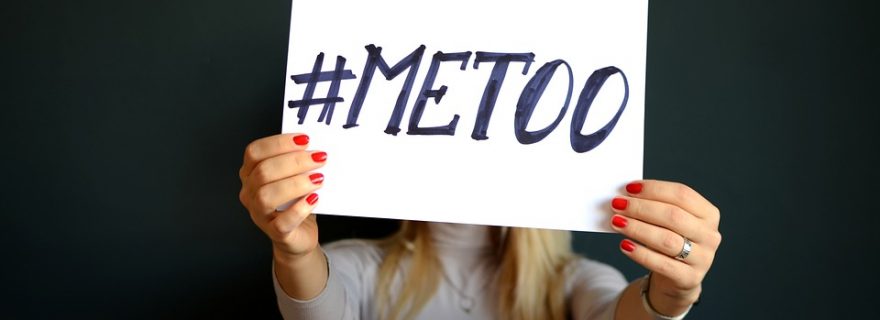#MeToo gives people the courage to face the consequences
The #MeToo campaign has shown that sexual harassment is much more common than was previously believed. The campaign gives people the courage to share their negative experiences, because they see their friends and acquaintances also having that courage.
All over the world, women – but also increasingly men – are sharing their experiences of sexual harassment via the hashtag #Me too. The hashtag originated in the U.S., where in the wake of the scandal concerning Hollywood tycoon Harvey Weinstein actresses and other artistes opened up about the humiliation and intimidation they had endured, and continue to endure, from powerful men in the film world. The expression, which had earlier been used by the activist Tarana Burke, was tweeted by the actress Alyssa Milano, who urged other women to share their experiences of sexual abuse and intimidation to show just how widespread this kind of behaviour is.
So much attention
By now the use of this hashtag has caught on in 85 countries. Within 24 hours, the expression had been tweeted over 500,000 times and the hashtag was used in 12 million Facebook posts by more than 4.7 million people. In the U.S., this campaign led to the downfall of famous powerful Hollywood figures such as Harvey Weinstein and Kevin Spacy. And in the Netherlands too well-known figures (but also a lot of unknown individuals) have disclosed incidents of sexual harassment or assault.
So how come this campaign has received so much attention, and why are people coming forward now, sometimes years after the event, to reveal the humiliation and abuse they have suffered? The experiences are often highly personal, and studies show that people who have suffered sexual harassment often suffer from shame or guilt. Psychological research into victim blaming also shows that there is a widespread tendency to hold victims of crimes[M.C.1] or illegal acts fully or partially responsible for the damage inflicted on them. If people are aware of these negative consequences, why are victims sharing the #me too tweet so much?
Courage begets courage
One reason why people are now daring to take this kind of action via the #metoo campaign is that if people like you, who you can identify with (like your friends and acquaintances on Facebook) dare the share this kind of personal information with everyone, this may make you more willing to be vulnerable. The fact that the people around you support you and have been through the same thing gives you the courage to admit your own vulnerability. Another aspect is that although many victims of harassment feel alone, sharing their story with fellow victims may help them to cope with the negative consequences and their negative emotions; this has also been demonstrated in research into support groups for cancer patients. The #me too campaign is a simple way to share these sorts of experiences.
First step
One downside of the #me too campaign is that it may stir up a great deal of revulsion, anger, and sorrow. For victims it may reopen old wounds, or may lead them to relive the offences or negative acts that were inflicted on them in the past. Whether or not you agree with the campaign, it strikes me that one good development is that it is a first step towards reducing sexual harassment in the workplace, by increasing awareness among both victims and non-victims that such abuses are much more common than people think.
This blog is a translated version of the Dutch column of Gert-Jan Leliveld in the news medium NRC





